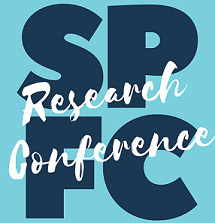The impact of sexual assault on the relationship between symptom severity and counseling visits in trauma survivors
Faculty Sponsor(s)
Jacob Bentley, Ph.D.
Presentation Type
Event
Project Type
Completed quantitative research study
Primary Department
Clinical Psychology
Description
Symptoms experienced post-trauma negatively impact mental health and may predict treatment engagement. Although the experience of sexual assault predicts psychopathology, survivors often do not seek help. We hypothesized that increased symptom severity (PTSD, depression, and anxiety) would predict more counseling visits for trauma survivors, and that relationship would be weakened for individuals presenting for sexual assault. Three moderation models were analyzed. Results indicate nonsignificant direct effects, and nonsignificant interactions (b = .03, p = .35, b = -.003, p = .97). Such findings are inconsistent with prior literature and illustrate the importance of considering alternative predictors of treatment engagement.
Copyright Status
http://rightsstatements.org/vocab/InC/1.0/
Additional Rights Information
Copyright held by author(s).
The impact of sexual assault on the relationship between symptom severity and counseling visits in trauma survivors
Symptoms experienced post-trauma negatively impact mental health and may predict treatment engagement. Although the experience of sexual assault predicts psychopathology, survivors often do not seek help. We hypothesized that increased symptom severity (PTSD, depression, and anxiety) would predict more counseling visits for trauma survivors, and that relationship would be weakened for individuals presenting for sexual assault. Three moderation models were analyzed. Results indicate nonsignificant direct effects, and nonsignificant interactions (b = .03, p = .35, b = -.003, p = .97). Such findings are inconsistent with prior literature and illustrate the importance of considering alternative predictors of treatment engagement.


